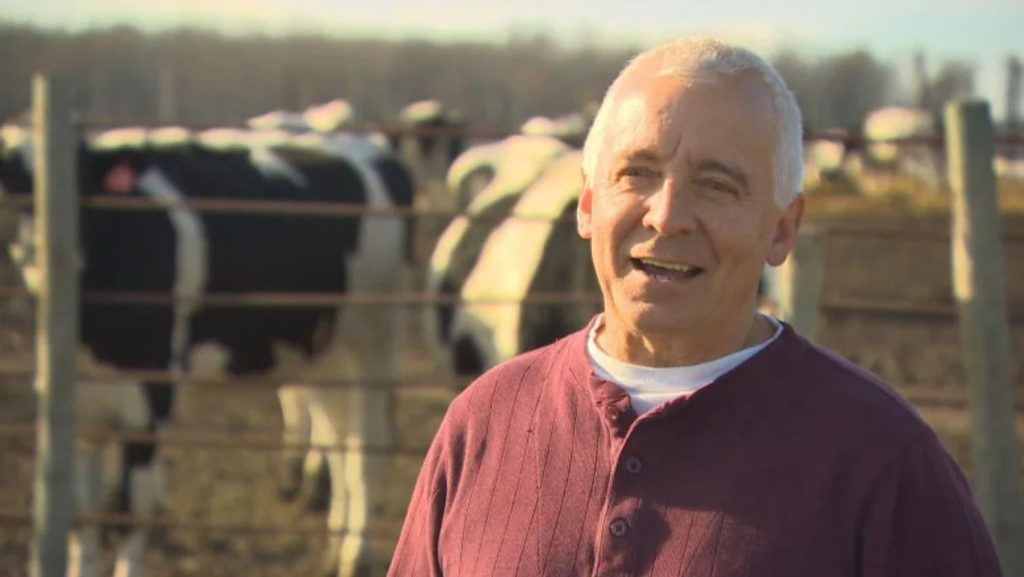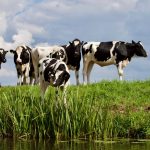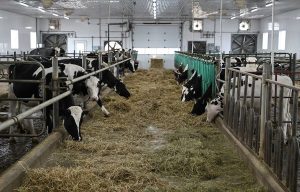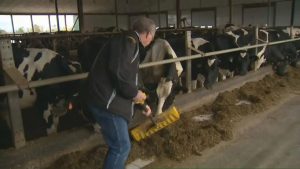
Many Manitobans have come to expect chilly weather and maybe a dumping of snow this time of year, and instead are experiencing an unseasonably warm and pleasant November.
It’s not good news for farmers, though.
Producers have just come out of a hot and dry summer and are hoping for rain and snow to build up soil moisture for the next growing season, but that hasn’t happened yet.
The lack of precipitation causes David Wiens, a farmer near Grunthal, Man. with 240 milking cows, a lot of concern.
“In order to get a crop for next year, we really do need either a lot of snow or we do need some very steady rains, which hasn’t been happening,” he said.

It’s become a matter of preparing for the worst and hoping for the best, said Wiens, the chair of Dairy Farmers of Canada.
“We have to keep feeding these cows. This is a priority, regardless of what kind of year we have … and so if this happens again next year, we would be buying a lot more feed than we are now, and if we’re short, everybody’s short, so that means it’s going to be very, very expensive and very challenging to get.”
“Everybody can expect more of these stories, only worse if this continues into next year.”
This past year, Charles Fossay was thankful for the little bit of moisture below the layer of topsoil.
“This year, the only reason we got a crop was really because of the subsoil moisture. We have pretty much depleted most of the subsoil moisture, we need to recharge that,” said the wheat and canola farmer who lives north of Starbuck, Man.
“We need that rainfall and snowfall to really recharge the whole system.”

Fossay also serves on the board of directors of Keystone Agricultural Producers, representing grain and oilseed producers. He says a problem for farmers turns into a problem for the whole province.
“It’s going to be a disaster for the entire economy and the people that live in Manitoba. We depend upon water.”
The signs of drought are also visible in the city.
It’s been so dry, the low water levels in the Red River caused a long-submerged vehicle to appear from the depths.
The vehicle was seen in the river on Friday, just south of the Provencher Bridge towards the shore on the St. Boniface side.

These signs of drought are worrisome for Infrastructure Minister Ron Schuler, who oversees emergency measures and the hydrological forecast centre.
He says there are three big problems facing the province: a lack of soil moisture, low river levels and low lake levels.
Lake Manitoba is at its lowest point in history, while the Red and Assiniboine rivers are collectively down about 1,000 cubic feet per second, he said.
“You’d have to go back to the 1930s to see something this severe,” Schuler said in an interview on Sunday.
He’s concerned that without more precipitation, Manitoba’s multi-billion dollar agriculture industry will be in serious trouble.
“I would suggest that as a government and as Manitobans, we should be begging, praying and hoping that we have an above-average snowfall this winter or we are going to be in really big trouble come spring.”
Back in Grunthal, Wiens said climate change is making it harder to know if these challenging growing conditions will persist into the future.
“One wonders, is this a new normal? Or is this another one of those cycles?”

























